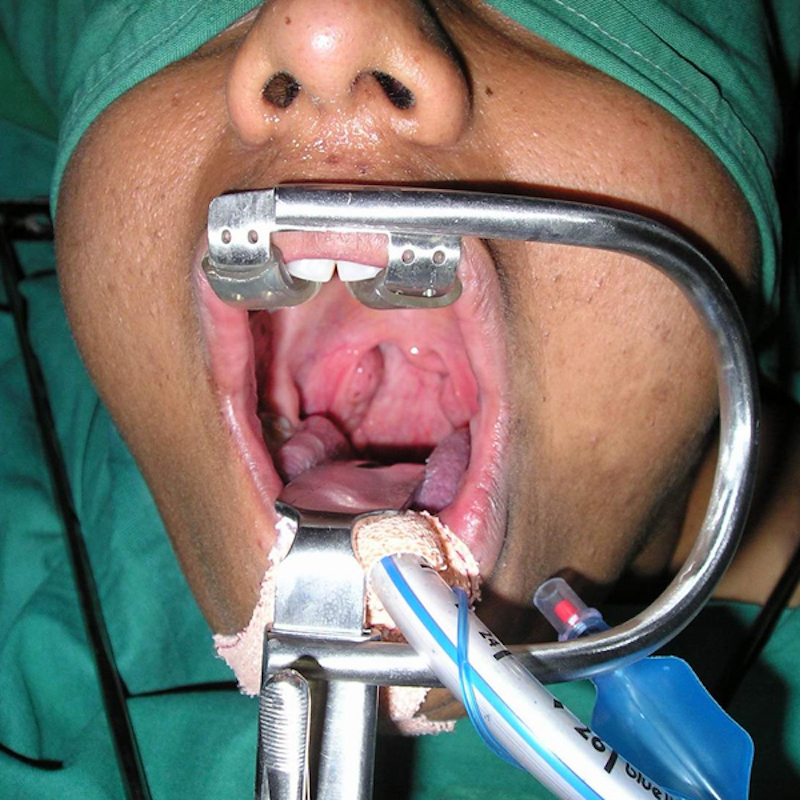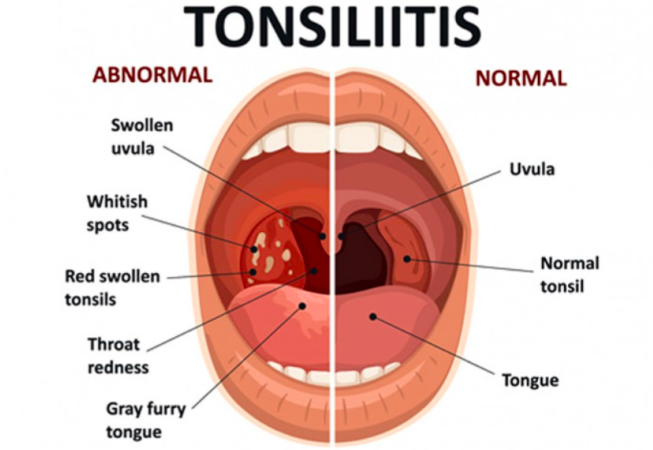


Date: 06 May 2025
Tonsillitis is a common and often painful condition that affects people of all ages, though it tends to be most frequent in children and young adults. It occurs when the tonsils, two small lymph nodes located at the back of the throat, become inflamed, usually due to a viral or bacterial infection.
These soft tissue structures play a role in the immune system, acting as the body’s first line of defense against inhaled or ingested pathogens. However, when overwhelmed by infectious agents, the tonsils can become swollen, red, and sore, leading to a range of symptoms including a severe sore throat, difficulty swallowing, fever, and swollen lymph nodes.
While many cases of tonsillitis resolve on their own with rest and home care, others, especially those caused by bacteria such as Streptococcus, may require medical treatment like antibiotics. In chronic or recurrent cases, surgical removal of the tonsils (tonsillectomy) might even be considered.
Understanding the causes, symptoms, and effective management strategies for tonsillitis is key to finding relief and preventing complications.

Tonsillitis occurs when the tonsils become infected, leading to:
Most cases are viral and resolve on their own, but bacterial infections like strep throat require antibiotics.
Give your body time to heal by getting plenty of rest. Staying hydrated with warm fluids like teas and broths can soothe the throat and keep you comfortable.
Over-the-counter medications can alleviate pain and reduce fever:
Always follow dosing instructions and consult a healthcare provider if symptoms persist.
These can provide temporary relief by numbing the throat and reducing irritation. Look for products containing ingredients like benzocaine or menthol.
If a bacterial infection is confirmed, antibiotics such as penicillin or amoxicillin may be prescribed. It's crucial to complete the full course, even if symptoms improve earlier.
Ibuprofen are a must-have for anyone looking for effective relief from pain, inflammation, and fever. Whether you're dealing with a tension headache, back pain, period cramps, or joint discomfort, this over-the-counter pain reliever provides fast and lasting comfort.
Strepsils Sore Throat & Cough Lozenges are designed to provide fast and effective relief from sore throat discomfort and dry, irritating coughs. With a dual antiseptic action, these lozenges help fight bacteria while soothing throat irritation.
Advancis Extra Throat Relief Lozenges are specifically designed to provide soothing relief for sore throats. Made with a unique blend of powerful ingredients, these lozenges quickly alleviate discomfort and irritation, helping you get back to your normal routine. The menthol and eucalyptus oil in the formula work together to provide a cooling and soothing sensation, reducing pain and inflammation in the throat.
Tylenol Children's Pain & Fever Chewable Tablets offer a fast and reliable way to reduce fever and relieve common aches in children. Formulated with acetaminophen, these chewable tablets work quickly to ease pain caused by colds, flu, headaches, sore throat, and minor injuries.
Note: Always consult with a healthcare professional before starting any medication.
While many cases of tonsillitis resolve with home care, consult a doctor if you experience:
A: Yes, most viral cases can be managed with rest, hydration, and over-the-counter remedies.
A: Only if it's caused by a bacterial infection, such as strep throat. A healthcare provider can determine this.
A: Viral tonsillitis typically improves within 7 to 10 days. Bacterial infections may improve sooner with antibiotics.
A: Yes, especially if caused by a virus or bacteria. Practice good hygiene to prevent spreading.
A: If symptoms are severe, persistent, or recurrent, consult a healthcare professional.